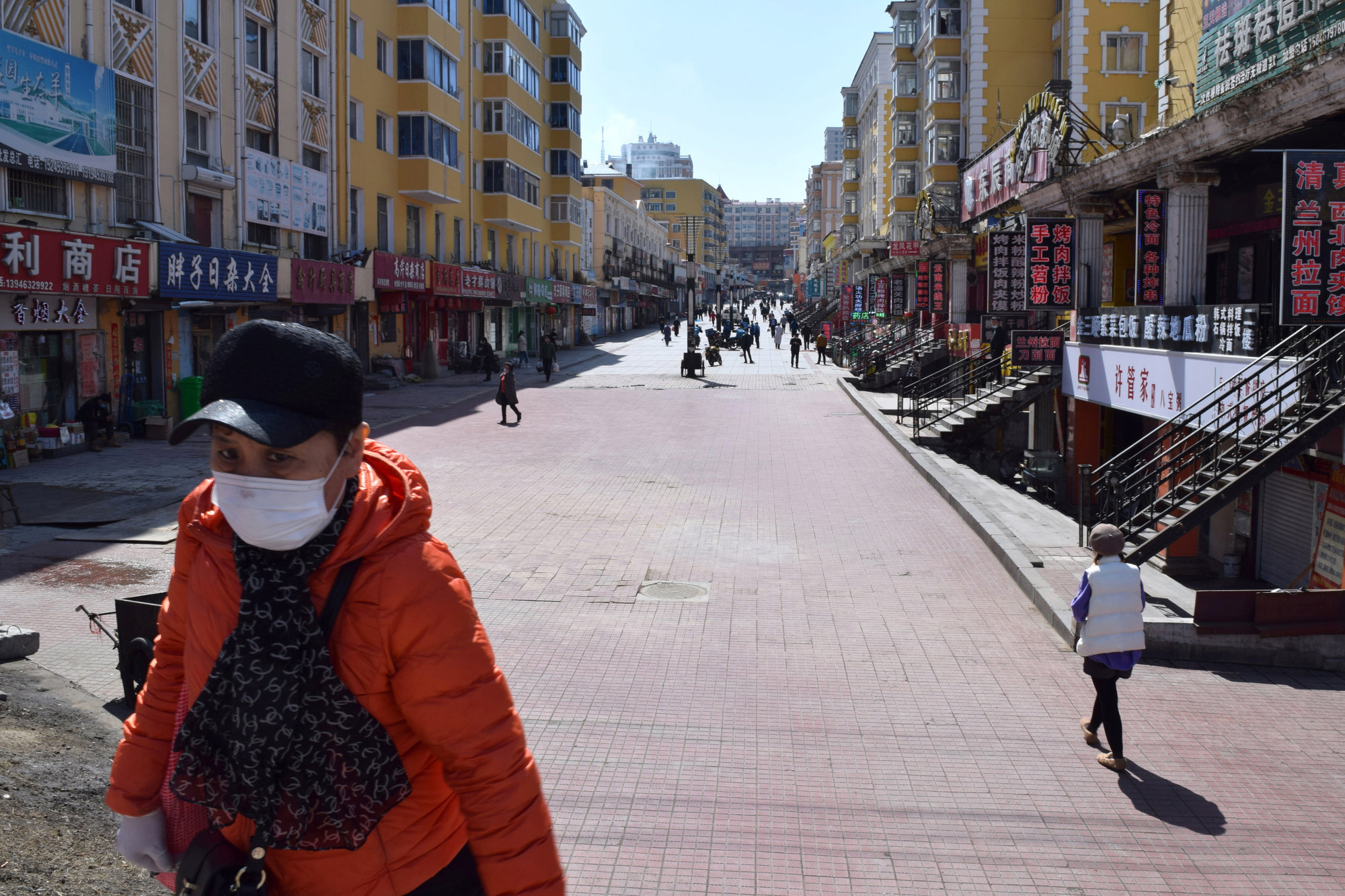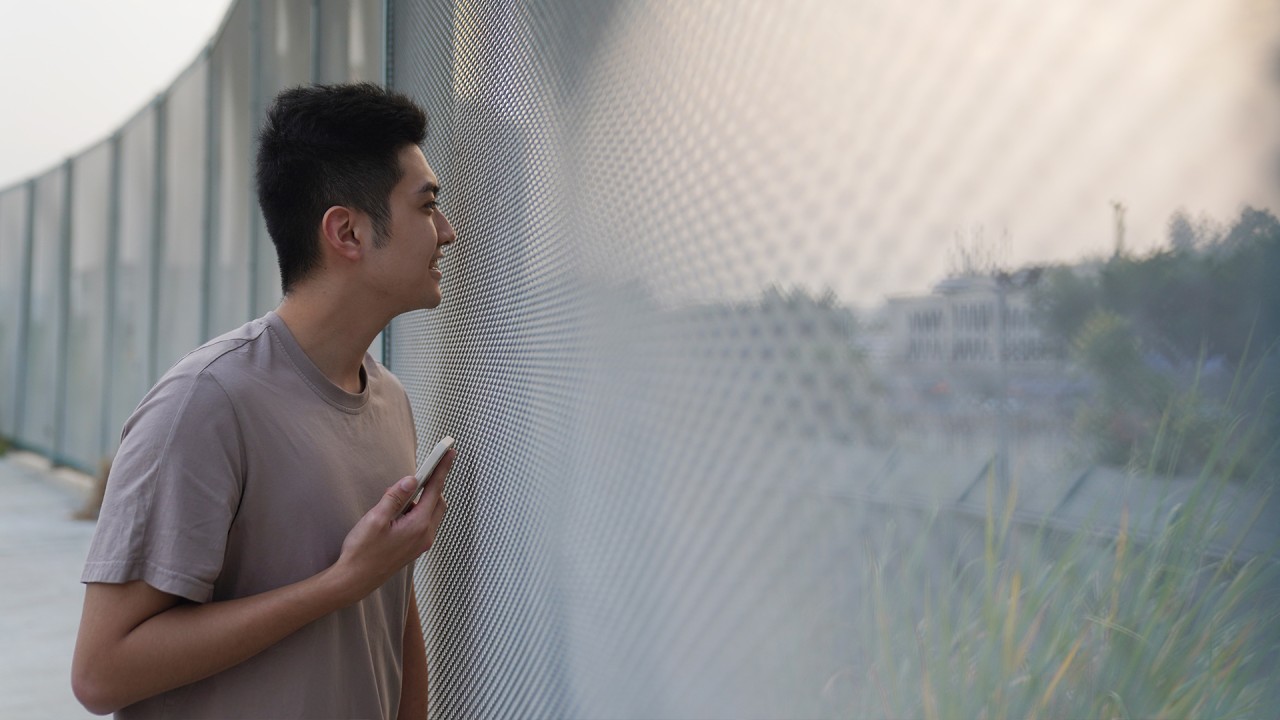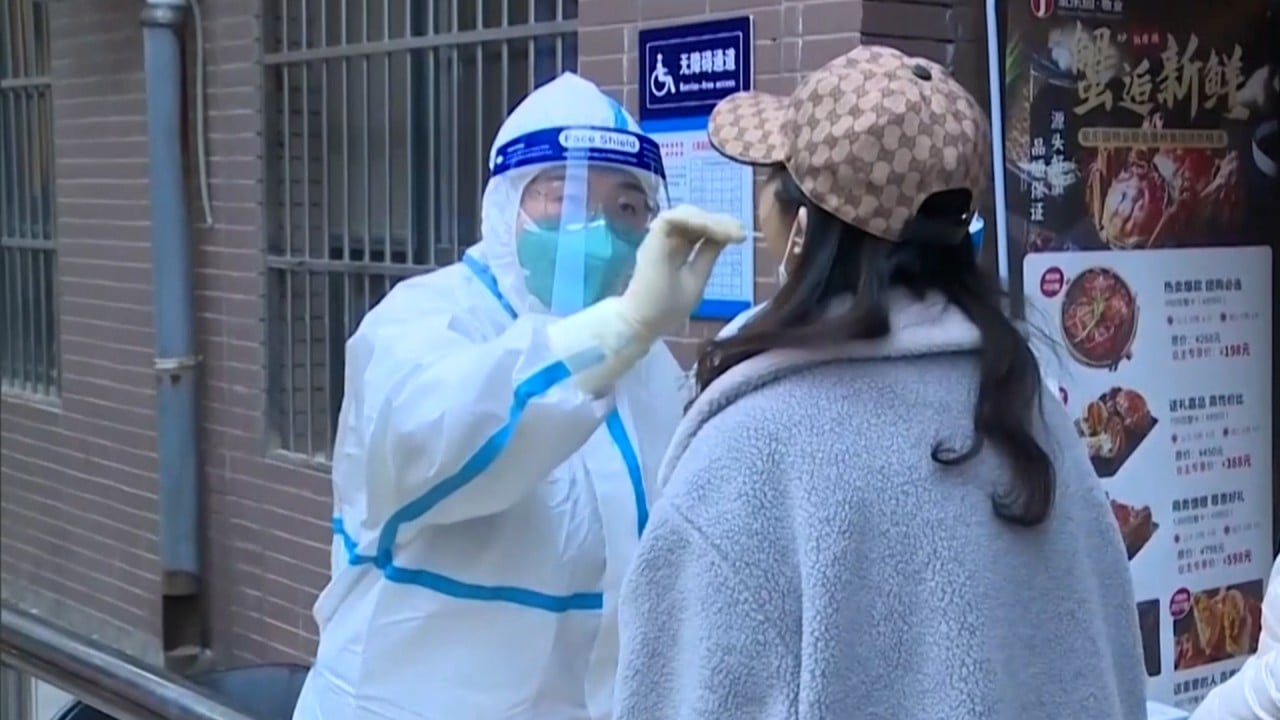
Living with zero Covid in China: 2 years on with no end in sight
- From traders to professionals and schoolchildren, coronavirus curbs have upended lives across the vast country
- While strict border controls and quarantine have kept the majority safe, zero-Covid strategy suggests restrictions are not likely to be lifted any time soon
It is before 6am on a winter’s day and the snow lies thick outside her window, but Yan Xia is up and about, ready to start live-streaming from her home in China’s northernmost, coldest province.
She will be showing viewers the heavy snow blanketing her hometown of Suifenhe, in Heilongjiang province next to Russia. She will also be talking about the local dishes that Russian visitors liked, and how the busy border town that once swarmed with these day trippers has fallen empty.
The 46-year-old shop owner once had a thriving business, selling everything from electronic watches to plastic slippers.
Now, she just hopes some of her viewers will click on the link to the online shop on her page to buy some local specialities, like wood-ear fungus.
“Early morning, when the influential live streamers are still asleep, is my best time window. I stand no chance when they start broadcasting at prime time. This is the way I make money now,” Yan said.

The arrival of the highly transmissible Omicron variant has further dampened hopes.
Yan is just one of the many local traders whose livelihoods have taken a hit. Cross-border trade was not sustainable because there was no guarantee when her goods might reach her customers, and Yan ended up with no income last year. Suifenhe was also placed under lockdown twice due to coronavirus outbreaks.
Reinfections 3 times more likely with Omicron, South African scientists say
Yan knew she had to find an alternative living. And in March this year, she started online streaming, hoping to sell to domestic customers instead.
“It’s been two years. My goods are still lying piled up in the shop. I can’t just sit and wait for the border to open. We need to eat,” Yan said.
In fact, she prefers that the border remain closed, as the epidemic situation in Russia is “too scary”.
She now has about 200,000 online subscribers and hopes to switch to a different trade that depends more on domestic customers’ interest in local food than Russian taste for Chinese goods.

Government officials and public health experts have repeatedly asserted that China will not abandon its “zero-tolerance” strategy on Covid-19, and whether the borders open depends not only on immunity derived from vaccination but also the overall global pandemic situation.
In the southern tech hub of Shenzhen, some 3,600km (2,236 miles) from Suifenhe, King Li does not expect to see his 10-year-old daughter return to school any time soon.
Li Jiayue used to go to primary school in Tin Shui Wai, a neighbourhood just across the border in Hong Kong. But the last time she sat in a real classroom was nearly two years ago.
She is just one of the tens of thousands of “cross-border children”, or Hong Kong citizens born to mainland parents. Before Covid-19 curbs shut border crossings in February 2020, she would take a bus to get to class every day. Now, even though online schooling saves her the three-hour commute, Jiayue is eager to return to campus and see her teachers and classmates again.
“She can’t participate in afternoon activities like dancing, football and music. We can just take her for a walk every day. We have tried to take her to students’ gatherings here in Shenzhen, but it’s not the same as taking part in school activities,” Li said.
Most of Jiayue’s classmates are also cross-border students like her, who must now rely on online tutoring provided by the school.
But Li is not a fan of online tutoring, because Jiayue does not behave as well as she would in a real class. “My daughter is easily distracted in online class. She is not always attentive and might be playing video games. Sometimes her homework is not turned in on time,” he said.
In fact, Jiayue has had to repeat a year because she failed to follow school work through online lessons.
Li said there were about 30,000 children in a similar situation in Shenzhen and some parents had even tried local schools but spots were limited. Parents were also trying to find classrooms to group children together to give them a school-like experience, but uncertainty over an imminent opening of borders made such an investment seem too risky.
Fears Hong Kong’s cross-border pupils will be left behind when travel resumes
“I am prepared for three more years of online tutoring in Shenzhen. Actually, you could apply and interview online for admission to a middle school in Hong Kong. I hope the border will open before then but I am prepared for the worst,” Li said.
Internal travel restrictions are still imposed from time to time in response to outbreaks, and this has changed how people do business.
Zhao Yandong, a digital promotion agency executive in Beijing, has cut back dramatically on travel. This is not because he fears contracting Covid-19, but rather the potential risk of becoming a close contact or secondary close contact, or even being in a city with an outbreak – lined up for compulsory testing and quarantine or left stranded by travel restrictions.
“I returned from Shijiazhuang, Hebei province, before an outbreak was discovered in January. Several days later, I received a call to get tested,” Zhao said.
“It’s not much of a problem to take a test but the Beijing government has now announced that residents of cities with a reported outbreak cannot return to the capital for some time. It’s too risky to travel now with sudden outbreaks, which is basically very possible everywhere in the country.”
Meetings have been moved online and Zhao has to be on the phone a lot, but one perk is that he can spend more time with his family, he says.
As for foreign residents, China may offer a much safer pandemic environment, but the inconvenience of travel curbs is prompting some to consider leaving.
Dave (not his real name), a manager with a foreign non-governmental organisation in Beijing, says living in a country that shuts borders following each outbreak and imposes strict public health interventions is hard, especially for a foreigner with family abroad.
China defends zero-Covid strategy, says speed vital to stopping spread
Dave was in Britain for a family reunion in February last year and had to wait months before China reopened its borders to those holding valid work visas.
After two weeks of quarantine on arrival he was back at work, but now feels like he is stranded in China.
“Right now I can go back home but, because of the limited flights, the trip has become terribly expensive. Quarantine is expensive and unpleasant,” Dave said.
“It’s risky because one never knows whether I can get back if I’m infected abroad – China checks for antibodies before allowing you back to the country. I am stuck here and I don’t see this policy changing soon or any plan to change it,” he added.
“The virus could be with us forever and China might see there is no problem with keeping borders closed, but for me not being able to leave the country is not sustainable and a big problem. Maybe I should look for a job in another country.”
Dave also finds the domestic restrictions particularly strict, and travelling as a foreigner during the Covid-19 pandemic troublesome, especially in the smaller cities.
He briefly visited a building in Beijing which later turned out to have had an outbreak three days earlier. He then had to go into quarantine for two weeks.
Again, when he travelled to Yunnan province for a holiday, his Chinese friends were exempted from coronavirus tests but not him, even though his passport showed clearly that he had not left the country for months.
Once, a stranger walked up to him at the residential compound where he lives to ask where he was headed. He says this was because he is a foreigner.
All these little annoyances add up, and have strengthened Dave’s wish to move out of China, he said.
“It’s not the end of the world to be in home quarantine for two weeks. It’s not the end of the world to not be able to travel. It’s not the end of the world not to do this [thing] or the other. But, when you put them all together, it has become too much.”






